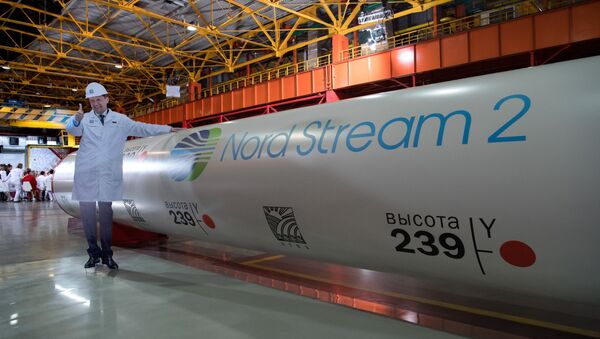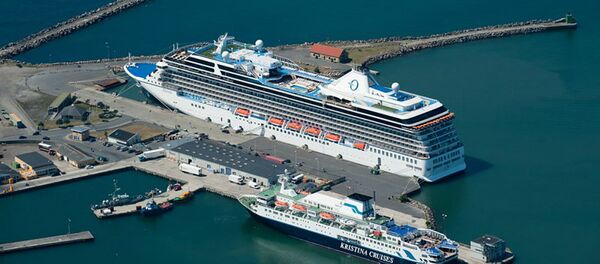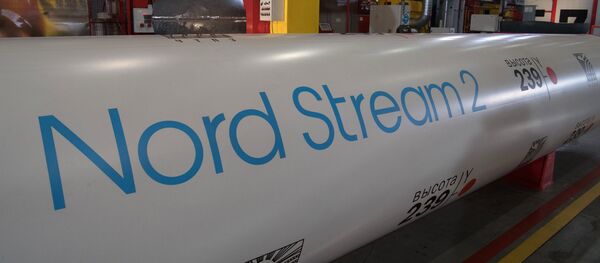The second Nord Stream gas pipeline aims to deliver 55 billion cubic meters of natural gas per year from Russia to the European Union.
The existing pipeline extends from near St. Petersburg, Russia to Germany via the Baltic Sea, bypassing Ukraine, the Baltic nations and Poland. Nord Stream 2 will use the original Nord Stream pipeline for 86 percent of the route before branching off.
Russian energy giant Gazprom and its partner companies signed a shareholders' agreement on the Nord Stream 2 gas pipeline in September 2015.
The prospective shareholders are Gazprom itself, with 50 percent of shares, Germany's Uniper SE and BASF/Wintershall (10 percent each), the Anglo-Dutch company Royal Dutch Shell (10 percent), Austria's OMV AG (10 percent) and France's Engie (10 percent).
#NordStream2's approach to Environmental Impact Assessments & Permitting Processes https://t.co/vVQ1AW1LG1 pic.twitter.com/kdt6glzvkq
— Nord Stream 2 Corp. (@NordStream2) 2 января 2017 г.
In December 2016, the Swedish press reported that the Gotland port of Slite and Karlskrona harbor (both in Sweden) had to relinquish their participation in the Nord Stream 2 due to pressure from the Swedish government and high-ranking military officials, who openly opposed Swedish participation, which they claimed would allegedly facilitate what they described as a Russian "invasion."
In this vein, Neue Zurcher Zeitung recalled that "the first Russian gas pipeline in the region has has been operating since the end of 2011, when Stockholm had no serious objections to allowing access to Swedish ports."
However, the situation has changed significantly since then, the newspaper said, citing Crimea's reunification with Russia and Moscow's alleged saber-rattling with respect to the Baltic States. Additionally, the newspaper cited allegations about clandestine Kremlin involvement in the civil war in eastern Ukraine.
Find out what progress has been made on @NordStream2: https://t.co/GMJFTleIyy pic.twitter.com/y6QR3pAxaP
— Gazprom (@GazpromEN) 29 декабря 2016 г.
In this regard, Swedish politicians have repeatedly expressed the view that they can no longer see Russia as a "friendly neighbor" and that they instead have to see it as a "potential threat," according to the newspaper.
At the same time, Neue Zurcher Zeitung quoted Swedish adviser on Nord Stream 2 Lars Gronstedt as saying that the risks are considerably exaggerated due to the "false myths" surrounding the project.
Nord Stream 2 is state-of-the-art technical project https://t.co/j2dJww3ogF pic.twitter.com/UBVWAmUVPo
— Nord Stream 2 Corp. (@NordStream2) 29 декабря 2016 г.
He was echoed by his supporters, who warned that one should not abandon Nord Stream 2 just because it is a Russian project. According to preliminary estimates, the construction of the Nord Stream 2 pipeline will bring millions of Swiss francs to Gotland's state coffers, the newspaper said.
On the other hand, Sweden cannot completely stop the development of the project because the Nord Stream 2 gas pipeline should be laid not in Swedish waters, but only along the adjacent economic zone, the newspaper said, adding that a final decision on the matter should be made before the end of February.
Never miss a story again — sign up to our Telegram channel and we'll keep you up to speed!




